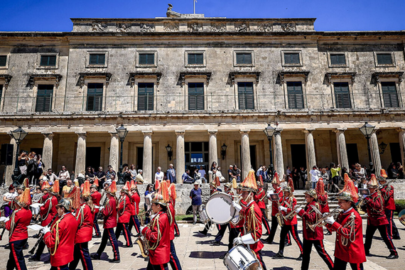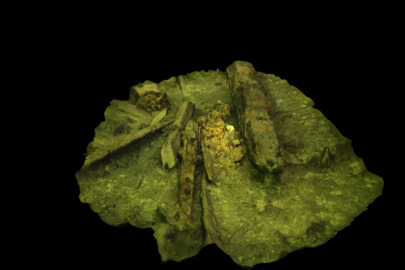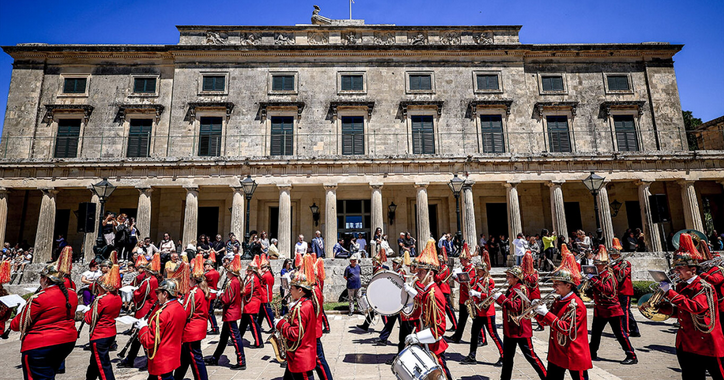The Academy of Athens will be holding a formal reception session for Israeli Professor Irad Malkin as a Foreign Partner on Tuesday, June 7, 2022, at 18.00.
The reception session of Mr. Malkin, Professor of Ancient Greek History and Mediterranean History and Cultures at the University of Tel Aviv, as a foreign partner of the Academy of Athens, will be broadcast.
During the welcoming ceremony, in the presence of the General Secretary Mr. Christos Zerefos, the President of the Academy of Athens Mr. Antonios Regkakos will introduce Professor Malkin, who will then deliver a speech entitled “Greeks Drawing Lots: from Egalitarianism to Democracy”.
Professor Irad Malkin has been a full professor of Ancient Greek History at Tel Aviv University since 1996, a professor of Mediterranean History and Culture at the same University since 2003, and a visiting professor at the Department of Classical Studies at Oxford University from 2017-2022.
He was awarded a Ph.D. in Ancient History from the University of Pennsylvania in 1982, the year in which he began his academic career at Tel Aviv University, and has since taught at a number of foreign academic institutions. invité to the École Pratique des Hautes udtudes and the École Normale Supérieure in Paris, inviting eminent professors such as Maurice Aymard, Marcel Detienne, by François Lissarrague and Pierre Vidal-Naquet, Membre invité at the Institut Universitaire de France, visiting professor at Johns Hopkins University in Baltimore, the University of California at Berkeley, the University of Montreal, etc.). For three years he was Chairman of the Dan David Prize Award Committee and co-founder / co-editor of the Mediterranean Historical Review.
In recognition of his scientific work in 2014, he was awarded the Israel History Prize. For three years he was Chairman of the Dan David Prize Award Committee and co-founder / co-editor of the Mediterranean Historical Review.
Irad Malkin’s impressive quantity and quality of scientific work include 13 monographs and editions of collective volumes, 65 articles, and a number of book reviews and entries in encyclopedias. It revolves around issues of national identity, colonisation, network theory, ancient religion and myth, history, and historiography of the Mediterranean.
Among his monographs it is worth mentioning briefly the following: In his book, Myth and Territory in the Spartan Mediterranean, Cambridge University Press 1994 (republished in 2002 and 2003, and translated into French under the title La Méditerranée spartiate: mythe et territoire, 1999, 2nd edition 2004) Irad Malkin proves with convincing arguments the existence during the archaic era of the great influence of the Lacedaemonians throughout the Mediterranean through the numerous colonies that Sparta founded at that time, an influence that justifies the term “Spartan Of particular interest are the conclusions of Irad Malkin concerning the historical-political role played by various myths of Sparta (myth of Heraclides, Menelaus’s visit to Libya during the Homeric Odyssey, establishment of Kyrenia and so on) in this process.
In his book The Returns of Odysseus: Colonization and Ethnicity, University of California Press 1998 (Italian translation I ritorni di Odisseo 2004), which was described as an “essential reading” for Homericists, historians of the archaic era and scholars of ancient ethnology, Irad Malkin focuses on the role of myths in the founding, the national identity but also the relations with the Greek world of the colonies in Northwestern Greece and Italy. In this context the significance of the Homeric myths, and especially of the myth of the famines of the Achaean heroes from Troy, proves crucial. The Homeric myth offered to non-Greek ethnic groups the means not only of their connection with Greek culture but of the formation of their national identity, giving them a “historical” past,
In his most recent and arguably most original work, A Small Greek World: Networks in the Ancient Mediterranean, Oxford University Press, 2011 (2nd ed. 2013, French translation Un tout petit monde: les résaux grecs de l’antiquité, 2018), Irad Malkin applies the microcosm networks of natural scientists Duncan Watts and Steven Strogatz as well as Albert-László Barabási and Réka Albert to argue that the “Greek Wide Web”, which formed the innumerable historical relationships between peoples, places and cultural practices in the Mediterranean and the Black Sea of the archaic era, resembles a set of nodes and connections within which the hyperlinks contributed to the birth of Greek culture. The book was unanimously hailed as a “major contribution” that would provide the necessary conceptual arsenal for studies in all areas of ancient Greek history, language, and culture.




































